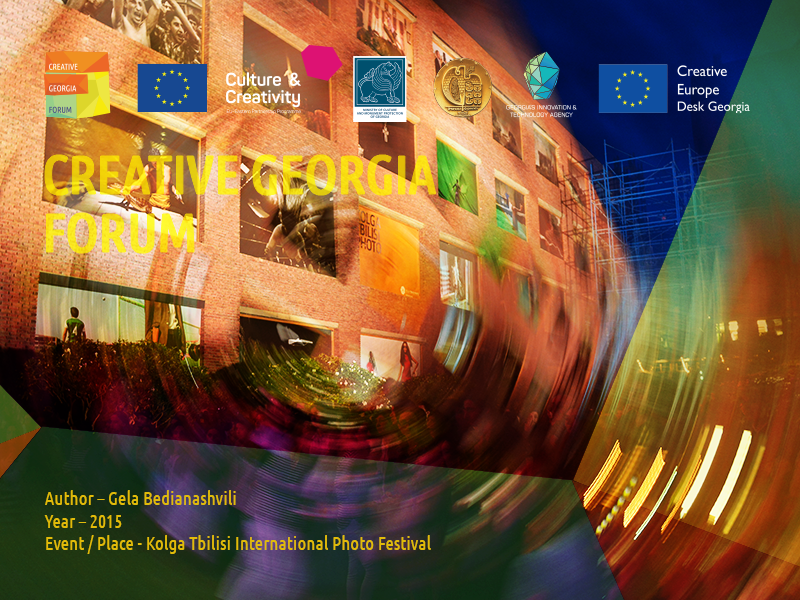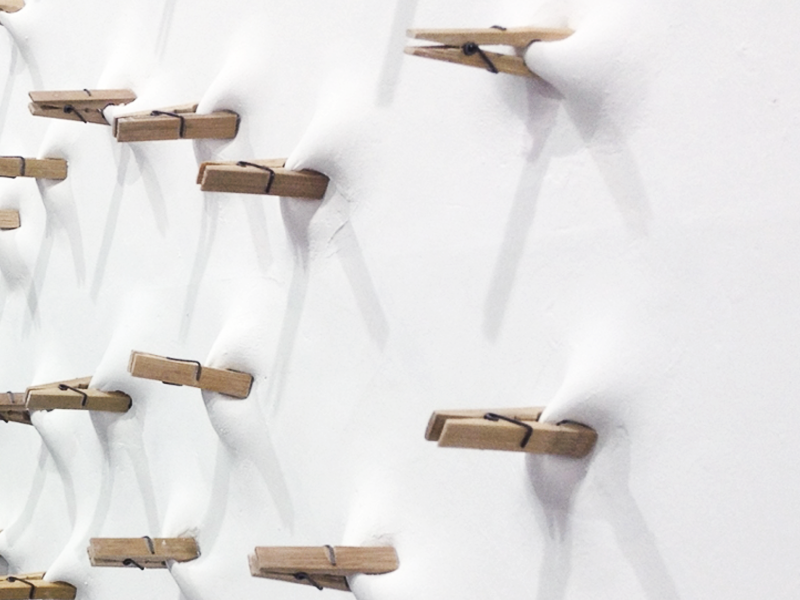
Tbilisi Manifesto for Cultural and Creative Industries Development in the Eastern Partnership Region
Considering that:
-
Development cannot be sustainable without culture, since culture is who we are and what shapes our identity;
-
Culture is both an enabler and a driver of the economic, social and environmental dimensions of sustainable development; When the cultural and creative industries become part of the overall growth and development strategy, they have proven to contribute to the revitalisation of national economies, generate employment, stimulate local development and foster creativity.
-
The role of culture is recognised in many of the Sustainable Development Goals including those focusing on the quality of life in terms of developed civic societies (quality education, peaceful and inclusive societies, gender equality, etc.), economic sustainability and healthy environment (sustainable cities and consumption and production patterns, food security, etc.) within 2030 Agenda for Sustainable Development adopted by the United Nations General Assembly in September 2015;
-
The challenges and the opportunities facing the six post-Soviet states of the Eastern Partnership region: Armenia, Azerbaijan, Belarus, Georgia, Moldova, Ukraine are similar due to their common historical path;
-
Culture plays a key role in international relations, as it contributes to promote international peace and stability, safeguard diversity, and stimulate jobs and growth [as reaffirmed by the Joint Communication “Towards an EU strategy for international cultural relations” adopted on 8 June 2016 by the European Commission and the High Representative of the Union for Foreign Affairs and Security Policy];
-
The initial development of Cultural and Creative Industries (CCI) needs a specially coordinated effort within governments and between public authorities, civil society and the private sector, taking into account the interdisciplinary nature of these sectors.
We declare that:
We will develop targeted initiatives to raise public awareness about the potential of culture and creativity, so that all stakeholders: policymakers, cultural professionals and creative entrepreneurs, representatives of other sectors, amongst them business sector, as well as civil society in general, could participate in various awareness raising campaigns; organise forums, conferences and workshops and develop innovative communication platforms with the aim to disseminate international best practices and success stories and to spread the results of CCIs studies from the EU member states; support the media to cover creative processes and encourage the development of new media tools, amongst them, web-based services for CCIs.
We will support the analysis of the cultural and creative sectors through interdisciplinary research and mapping. To increase greater understanding on the contribution of the CCIs to wider economy and different life areas and to develop and implement evidence based policies in the region, we need to conduct research based on specific methodology and well-defined key performance indicators in regards to different sub-sectors (e.g. UNESCO Culture for Development Indicators).
We will develop the creative ecosystem in the Region by considering CCIs as a transversal dimension in other key public policy areas and as the major asset for countries’ sustainable development. We encourage close cooperation between policymakers from different life areas, the business community and non-governmental sector to establish a separate CCI strategy and integrate CCIs into many other key policies.
We will position culture and creativity as an integral part of all levels of the education system in order to develop creative skills and thinking on the one hand and on the other hand, to develop the habit of cultural consumption from the early childhood across the Eastern Partnership region. We aim to ensure that these institutions produce qualified professionals by improving relevant teaching standards at pre-school, general and non-formal education institutions and the institutions of higher education and by promoting the practice of life-long learning. We will position creative entrepreneurial activities in curricula through initiating interdisciplinary programmes by bringing together students from culture, business and technology, developing inclusive and interactive teaching methods and platforms, such as fablabs (small-scale workshops)on the premises of the educational institutions, developing socially engaged practices with local communities, etc.
We will invest in creative industries’ platforms, both physical infrastructure and virtual hubs, for developing a strong creative economy in the Region. We need to develop the programmes, such as creative incubators and accelerator facilities, that enable creative businesses to collaborate with one another leading to the increased competitiveness of creative goods and services, but also, we need to mobilise spaces, e.g. old industrial infrastructure, where creative individuals can meet, discuss their ideas and experiment. This will strengthen multi-disciplinary environments, increase the attractiveness of locations and develop local communities.
We will develop a sustainable, transparent and innovative funding mechanism for CCIs development. We need to consider international best practice and implement alternative funding mechanisms at central, municipal and regional levels following the principles of good governance; a range of support services should be introduced and tested, such as creative vouchers, small-scale seed-funding, crowd-funding, etc. The practice of philanthropy and public private partnership must be encouraged.
We will protect Intellectual Property Rights (IPR) and Related Rights and strengthen law enforcement mechanisms. IPR and Related Rights represent one of the main sources for the income of creative individuals and their protection requires complex approach. Therefore, it is of vital importance to organize information campaigns, which will unite all key stakeholders: the representatives of the cultural sector, IPR owners, collective management organisations, representatives of judicial sector and policy makers.
We support co-production and the export of creative products and services across the region. We need to establish funding tools for regional co-production and strengthen relevant platforms for export opportunities by developing regional markets for the cultural and creative products and services, what in turn will help creative enterprises to expand the scope of operations. Moreover, increased export of creative goods and services contribute to the economic development of the entire region and internationalizing of all six partner states.
We believe in the power of culture and creativity in peace building and we know that the regional cooperation in this regard will result in stronger economic performance for the entire region. With this in mind, common efforts to create a stage for cross-sectorial exchange (artists’ and creative professionals’ mobility programmes, cross-border projects) and cross-disciplinary approach needs to be encouraged and implemented in the Eastern Partnership region.
Therefore, we propose that the supporters of this manifesto:
-
Take steps towards the realisation of a comprehensive approach in order to keep culture and creativity firmly on the agenda through fostering the partnership between (public) policymakers and the other key stakeholders (the representatives of CCIs, the business community, civil society, etc.), encouraging the development of transparent, participatory and informed systems of governance;
-
Initiate cross-sectorial strategic alliances between both the governments of the Eastern Partnership region and creative professionals and plan cross-border projects across the region;
-
Call upon governments, donors, international bodies such as the EU and international financial institutions such as the World Bank, IMF etc., civil society and the private sector, in accordance with the above-mentioned principles and priorities, to take action in close cooperation and partnership to promote culture and creativity as an important component for social and economic development of the entire region.
Tbilisi, December 9, 2016, at Tbilisi Technology Park




